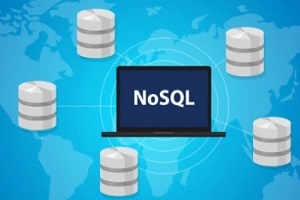Database requirements are a common topic of discussion when approaching a new application or project. A database refers to a collection of information that is stored and accessed on a computer and can be used in a variety of ways. There are two main types of databases: relational and non-relational databases.
Businesses rely heavily on databases to keep important information organized and easy to access. Data must conform to a specific set of rules to ensure that it can be found quickly and with great precision. Both relational and non-relational databases can be highly useful in this regard. Learn more about both relational and non-relational databases and how to determine which to use for an organization.
A Brief Look At Databases And Their History
A database refers to a logical grouping of data that can support the electronic storage and manipulation of data from a computer system. Databases are typically controlled by a database management system (DBMS) which, when combined with associated applications, are referred to as a database system.
Data found in modern databases are often seen in rows and columns within a series of tables. This simple structure makes the data easy to access, manage, update, modify and organize. Today, many databases use structured query language (SQL) for writing and querying information.
Databases have been used for more than five decades, having evolved from flat file-based types to the innovative relational and non-relational databases used today. Historically, databases have fallen into one of four categories:
- Flat File-based Databases — Consists of file systems with data maintained in files.
- Hierarchical File-Based Databases — Similar to a flat file-based system but the files share a parent-child relationship.
- Relational Databases — Manage data into tables.
- Non-Relational Databases — Customized databases.
Relational Databases And What They Entail
 A relational database, also known as a relational database management system (RDMS), stores data in tables. These tables typically have shared information between them that creates a relationship between tables. Tables use columns to help define the information being stored and rows that hold the actual data.
A relational database, also known as a relational database management system (RDMS), stores data in tables. These tables typically have shared information between them that creates a relationship between tables. Tables use columns to help define the information being stored and rows that hold the actual data.
Every table contains a column that has unique values and acts as the ‘primary key’. This column can also be used in other tables. When a table’s primary key is used in a different table, the column in the second table is called a ‘foreign key’. Relationships between field types and tables are known as schema.
Relational databases are also known as SQL databases, which is the language in which relational databases are written. SQL can be used to retrieve data, execute queries and edit data by deleting, updating or creating new records. Some popular SQL database systems include MySQL, Oracle, PostgreSQL, MariaDB and Microsoft SQL Server.
Advantages Of Relational Databases
Relational databases have been proven time and time again to be highly efficient in business settings. Their structured organization, clear requirements and normalization deliver a range of advantages.
- Data Accuracy — Relational databases require developers to sort through each piece of data. With no unstructured or repetitive information, database performance and readability are greatly improved. The use of primary and foreign keys helps connect and identify databases, resulting in a high degree of accuracy.
- Simplified Model — What makes relational databases so effective is their simple and uniform structure. There is no need to understand the complex architectural processes as just the main SQL queries are needed to search, input and manage data.
- Easy Access to Data — With relational databases, any type of data can be accessed simply by entering the query. There are no specific pathways for data search and management. Once a piece of data is found using a query, it can be directly edited without the requirement of a special pattern.
- Greater Security — Tables in relational databases can be kept confidential and separated from non-confidential tables. It is also possible to set different levels of access for each user to prevent unauthorized personnel from gaining access to sensitive data.
- Data Integrity — Entries are checked for validity and legitimacy with relational databases. In addition, records are properly processed and stored and if any database should detect an isolated entry, the developer is notified immediately.
- Normalization — Data should respond to clear regulations. SQL uses all of the same principles to break down information and does not store any data that does not fit the criteria.
Non-Relational Databases And What They Entail
Non-relational databases contain data stored in a non-tabular format and commonly use data structures including documents or objects. Unlike relational databases that often store a large number of traditional data types, a non-relational database stores a variety of data formats side-by-side.
There are several subtypes of a non-relational database with the two most common being document-oriented databases and key-value stores. Document databases store data within documents and support a variety of data types, such as strings, numbers, dates, arrays and objects.
Key-value databases are the most basic type of database in which information is stored in two parts, a key and value. Keys are used to retrieve data from the database. The simplicity of key-value databases helps restrict the type of use cases that it can be used for and complex data requirements cannot be supported.
Non-relational databases are also known as NoSQL databases and allow for more adaptability and flexibility than relational databases. Some popular examples of a NoSQL database include Cassandra, MongoDB, Amazon DynamoDB, Redis, Google Cloud Firestore and Apache HBase.
Advantages Of Non-Relational Databases
Non-relational or NoSQL databases use various data models to access and manage data. These databases are optimized specifically for use in applications that require large data volume, flexible data models and low latency, which can be achieved by relaxing some data consistency restrictions of other databases. Some advantages of non-relational databases include:
 Simple Data Management — Non-relational databases are less dependent on order, meaning data can be pasted directly into the document. A key is then assigned to the data which can be accessed at any time. Whenever a business is dealing with comments, open answers, big data or posts, it is often easier to handle these types of data with NoSQL.
Simple Data Management — Non-relational databases are less dependent on order, meaning data can be pasted directly into the document. A key is then assigned to the data which can be accessed at any time. Whenever a business is dealing with comments, open answers, big data or posts, it is often easier to handle these types of data with NoSQL.- Greater Readability — With non-relational databases, it is easy to open an individual document and obtain all the information needed on a particular user. There is no need to shift between multiple tables, allowing for streamlined use and readability.
- Enhanced Ability — A non-relational database allows teams to quickly update documents as needed. They can also assign keys to the connected data without having to switch between tables.
- Open-Source Options — Most types of NoSQL solutions are completely free to use or offer functional free versions. This can save businesses a significant amount of money over time.
- High-Performance — Non-relational databases are optimized for specific data models. They access patterns that allow for a higher degree of performance compared to similar functionality found with relational databases.
- Better Scalability — What makes non-relational databases unique is that they are designed to scale out by utilizing distributed clusters of hardware rather than scaling up with costly servers. Many cloud service providers (CSPs) manage these operations behind the scenes when offering fully managed services.
Which Database Should Your Organization Use?
When comparing relational and non-relational databases, it is important to remember that one is not better than the other. Both types of databases have their advantages and can be useful in the right setting.
The main difference between relational and non-relational databases relates to their structure. Relational databases contain tables that are interconnected, while non-relational databases are document-oriented. Instead of using tables, which are often utilized for a single type of data, non-relational databases can store information under unique categories based on different commands.
When To Use A Relational Database
Relational databases are the preferred option for house data that contains a fairly strong structure with rows and columns. Prime candidates for storage in a relational database include data points with a consistent meaning that can be easily placed into categories and that have relationships that are easily defined.
Common examples of data models that are suitable for relational databases include purchase histories, financial records, website and application analytics, individual user events, and employee data and internal records.
Relational databases are also a better choice in scenarios in which repeated data analysis will result in a need to constantly query specific data cross sections. Some examples of relational database solutions include Amazon Redshift, Oracle DB and BigQuery from Google Cloud.
When To Use A Non-Relational Database
 Non-relational databases are considered more flexible than relational databases and more capable of containing a variety of data types with large documents. They are also suitable for use cases in which there is a large amount of data that relates to a single topic. These may include audience segments, unified customer profiles, industry-wide trend data, application databases, and large collections of images, text or other data.
Non-relational databases are considered more flexible than relational databases and more capable of containing a variety of data types with large documents. They are also suitable for use cases in which there is a large amount of data that relates to a single topic. These may include audience segments, unified customer profiles, industry-wide trend data, application databases, and large collections of images, text or other data.
Organizations should consider using non-relational databases when the data they are storing needs to be flexible in terms of size or shape, or if the data may need to be changed in the future. Today, NoSQL databases can also be used in cloud-based environments, making them especially useful for horizontal scaling.
Speak With A Custom Software Development Company
Both relational and non-relational databases offer advantages that organizations may find useful. With relational databases, data is easily structured into categories, and relationships can be defined easily within data points. The data is also consistent in meaning, input and easy to navigate. With non-relational databases, the data is not confined to a structured group and users can perform functions with greater flexibility.
The data and analysis can also be more dynamic for more variant inputs. For more information about relational or non-relational databases and which is best for your organization, contact the software development professionals at Orases today.






